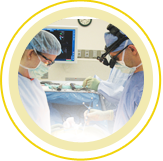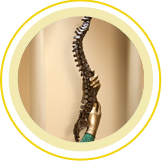Scoliosis may typically be considered a spinal condition, but it can affect much more than your posture or alignment. An abnormal curve in the spine can place stress on muscles, joints, and even internal organs.
For some people, this means occasional discomfort or cosmetic concerns; for others with more severe curvature, scoliosis can influence breathing, digestion, heart function, and overall quality of life. Understanding these potential effects can help you know when it’s time to seek medical care to address health issues related to scoliosis.

Key Facts About Scoliosis
- An estimated 6–9 million people in the United States live with scoliosis.
- Most cases develop during adolescence, though it can occur in adults as well.
- Scoliosis may appear as a C- or S-shaped curve in the spine.
- The condition is more common in females and often progresses if left untreated.
- Treatment ranges from monitoring and wearing a brace to surgery in severe cases.
How Scoliosis Affects More Than the Spine
Breathing Difficulties
When scoliosis becomes severe, the curvature can reduce lung capacity and make it harder to take deep, full breaths. This happens because the ribcage may be restricted, leaving less room for the lungs to expand. In rare, extreme cases, scoliosis can contribute to chronic breathing problems.
Muscle Imbalance
Uneven spinal curves place extra strain on muscles on one side of the body while underusing those on the opposite side. Over time, this imbalance can cause stiffness, weakness, or chronic discomfort. It may also affect posture and limit flexibility.
Digestive Concerns
A significant spinal curve can compress the stomach or intestines, leading to symptoms such as reflux, bloating, constipation, or early satiety (feeling full quickly). While this is uncommon in mild scoliosis, it may occur in advanced cases.
Heart Function
Severe scoliosis can also affect the heart. Compression in the chest cavity may reduce blood flow or place stress on the heart muscle, sometimes resulting in irregular heartbeat or decreased stamina.
Nervous System Effects
If scoliosis involves misalignment in the upper spine, it can contribute to nerve irritation or pain radiating into other parts of the body. Rarely, very severe cases may affect neurological function.
Mental Health and Well-Being
Chronic pain, physical limitations, or visible changes in posture can take an emotional toll. Children and teens with scoliosis may struggle with self-esteem, while adults may experience anxiety or depression related to ongoing symptoms. Addressing both the physical and emotional impacts is an important part of treatment.
Seeking Care for Other Effects of Scoliosis
Not every case of scoliosis leads to complications, but it’s important to see a spine specialist if you or your child experience:
- Noticeable changes in posture or uneven shoulders/hips
- Persistent or worsening back pain
- Shortness of breath during activity
- Digestive issues that don’t improve with diet or lifestyle changes
- Numbness, tingling, or weakness in the arms or legs
- Emotional distress related to scoliosis symptoms or appearance
Early evaluation and treatment can prevent progression and reduce the risk of further issues.
Scoliosis and Your Long-Term Health
Most people with scoliosis live healthy, active lives. But because the condition can affect more than just the spine, paying attention to symptoms — and seeking timely medical care — makes a difference.
If you suspect scoliosis or are noticing new symptoms, contact Spine & Scoliosis Specialists in Greensboro, NC. Our spine specialists can provide an accurate diagnosis, recommend the right treatment, and help protect your long-term health and well-being.



